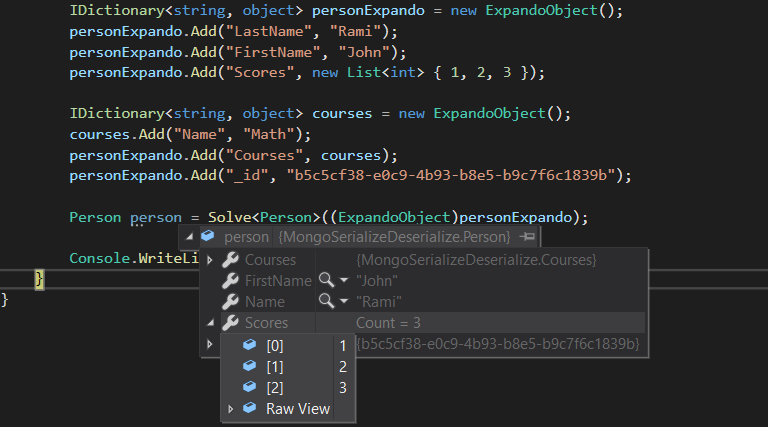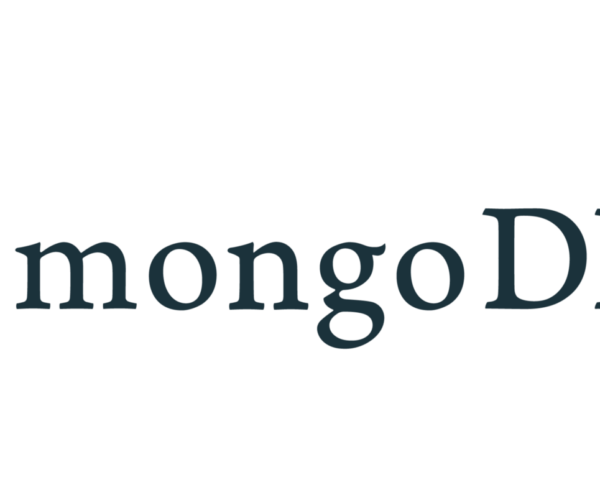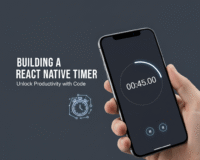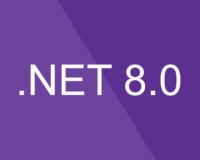With mongo some operations will return a dynamic object, usually wrapped in an expando object. To deserialize the expando object in the target class is quite simple, I actually looked in the source code to see how the driver performs this operation.
If you look at the test involving the dynamic type here (https://github.com/mongodb/mongo-csharp-driver/blob/b473de06f9bf3587b3a00f52ba2678d9aed71d74/tests/MongoDB.Bson.Tests/Serialization/Serializers/ObjectSerializerTests.cs) you will see the process.
Let’s assume we made a query that returned an object which needs to be deserialized to the following model:
public class Courses
{
public string Name { get; set; }
}
public class Person
{
[BsonId(IdGenerator = typeof(GuidGenerator))]
[BsonIgnoreIfDefault]
public Guid UniqueId { get; set; }
[BsonElement("LastName")]
public string Name { get; set; }
public string FirstName { get; set; }
public List Scores { get; set; }
public Courses Courses { get; set; }
}
Our solve method takes 2 lines of code from the github source:
public static TProjection Solve(ExpandoObject keyValuePairs)
where TProjection : class
{
var bson = keyValuePairs.ToBson(configurator: b => b.IsDynamicType = t => t == typeof(ExpandoObject));
var rehydrated = BsonSerializer.Deserialize(bson, b => b.DynamicDocumentSerializer =
BsonSerializer.LookupSerializer());
return rehydrated;
}
And for our test we will manually create an expando object
IDictionary<string, object> personExpando = new ExpandoObject();
personExpando.Add("LastName", "Rami");
personExpando.Add("FirstName", "John");
personExpando.Add("Scores", new List { 1, 2, 3 });
IDictionary<string, object> courses = new ExpandoObject();
courses.Add("Name", "Math");
personExpando.Add("Courses", courses);
personExpando.Add("_id", "b5c5cf38-e0c9-4b93-b8e5-b9c7f6c1839b");










